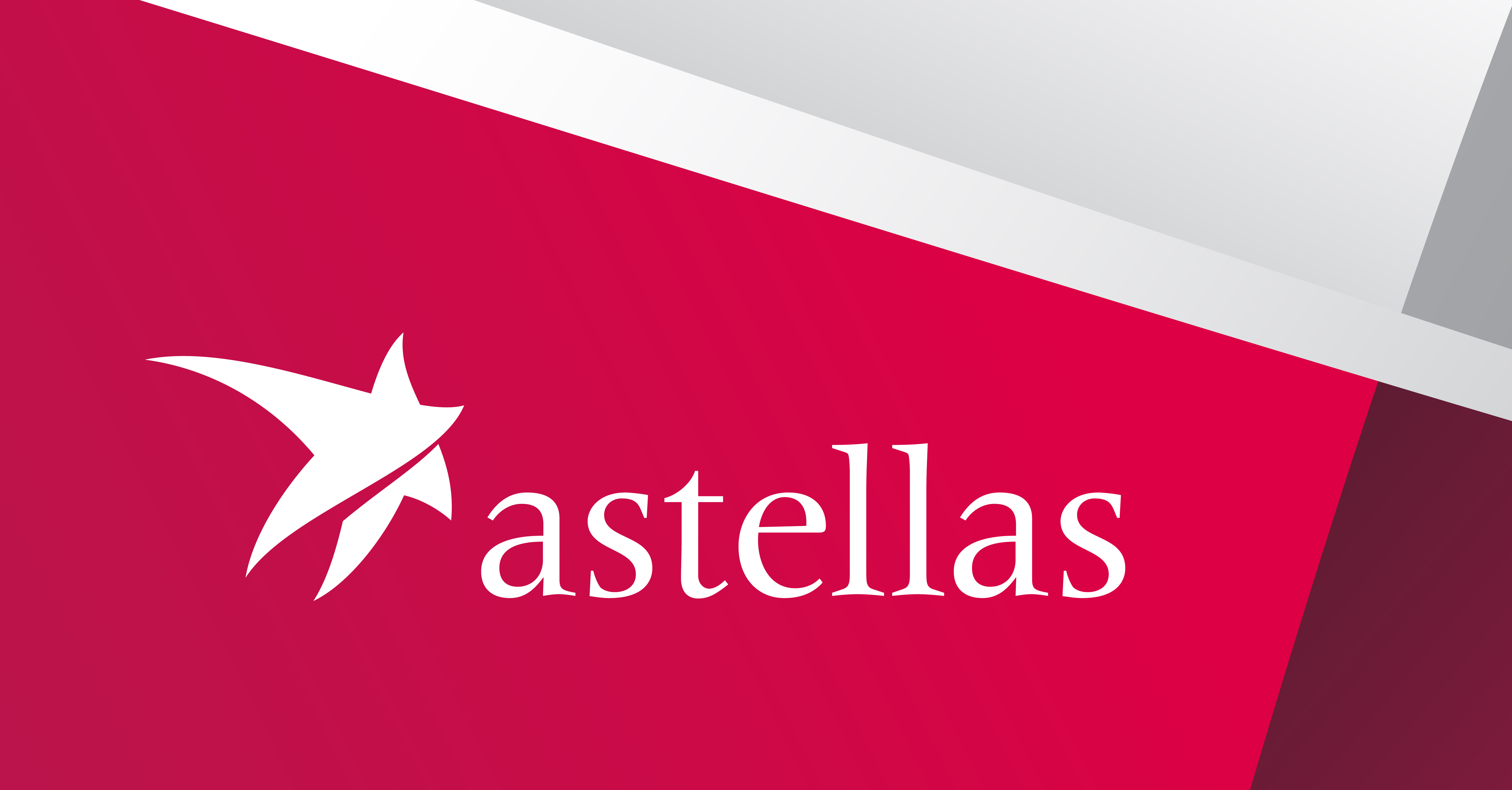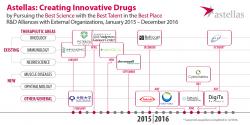You are now leaving XTANDI.com
The website you are about to visit is not owned or controlled by Astellas. Astellas are not responsible for the information or services on this site.

To be a part of the pharmaceutical industry is to believe that we can – and must – do more to improve people’s lives.
While many sectors rely on innovation to develop better products and services for their customers, the global pharmaceutical industry has a particular responsibility. Our companies have to continually develop new, safe and effective medicines that fulfill important unmet medical needs. It is crucial to understand and respond to these needs with new approaches to bring better value to patients, their family, physicians, caregivers and the healthcare industry as a whole.

That is why our ability to innovate is more important than ever. It is also why, more than ever, collaboration is crucial in order to turn innovative science into value for patients.
Astellas’ most successful collaborations have been based on a thorough understanding of our partners’ thinking, sharing our values with them and engaging them throughout the collaboration in jointly delivering results. Consequently, we have established over 20 joint research programmes with external institutions and biotechnology companies over the past three years.
By changing tomorrow through innovation, we can remain on the forefront of the healthcare industry’s continuous change.
This allows us to come up with new medical solutions, including therapies, technologies and modalities that improve people’s lives. I believe this is an outcome that all who work in pharmaceuticals hope to achieve, even though every company is driven by its own strategies, expertise and business objectives.
While we and our industry peers around the world have more work to do to address unmet medical needs, we are continuing to make progress. Global life expectancy, for example, has risen[i] for both men and women, increasing from 65.3 years in 1990 to 71.5 years.
And while cancer is still among our biggest global healthcare challenges, death rates for some of the most common cancers have fallen[ii] including stomach cancer (down 36 per cent), lung cancer (down 9 per cent), breast cancer (down 18 per cent) and leukemia (down 20 per cent).
While a variety of factors are responsible for these improvements, innovation is among the most significant.
In fact, of the $680 billion invested globally in research and development in 2015, the biotechnology and pharmaceutical sectors invest more than any other industry except computing and electronics – far more than aerospace/defense, auto and telecoms.[iii] The total R&D spend of pharmaceutical and biotechnology companies increased from $108 billion in 2006 to $141 billion in 2015[iv] and is expected to increase to $160 billion by 2020[v]. Among the world’s top 50 companies by total R&D investment in 2014-2015, 16 (32 per cent) were pharmaceutical companies.[vi]
Today, approximately 7,000 new drugs are in development.[vii] Of these, 70 per cent are potential first-in-class medicines,[viii] meaning they use a different mechanism of action from any other already approved medicine. That in turn could transform treatment options, patient care and, most importantly, patients’ lives.
Among the things that we have found can bring innovation to patients are:
No matter what industry you work in, and no matter what company you may be a part of, innovation will remain a driver of success. In the pharmaceutical industry in particular, innovation is always in our future, and that is an exciting and fulfilling journey to be on.
*Yoshihiko Hatanaka has been president and chief executive officer of Astellas since 2011.
 |
Get only the email alerts you want.
For media inquiries and reporter requests, please click here to fill out a request form.
Our communications team will respond to verified media requests within 24-48 hours as appropriate.
If you are not a reporter and need assistance, please visit our contact us page that includes information for patients, healthcare providers and researchers.
This website is intended for U.S. residents only. This website contains information about products that may not be available in all countries, or may be available under different trademarks, for different indications, or in different dosages. Nothing contained herein should be considered a solicitation, promotion or advertisement for any drug including those under development. Any information on the products contained herein is not intended to provide medical advice nor should be used as a substitute for the advice provided by your physician or other healthcare provider.
The site uses cookies to provide you with a more responsive and personalized service and to analyze site traffic. By using this site, you accept our use of cookies as described in our privacy policy. Please read our privacy policy for more information on the cookies we use, the processing of your personal data and how to delete or block the use of cookies.